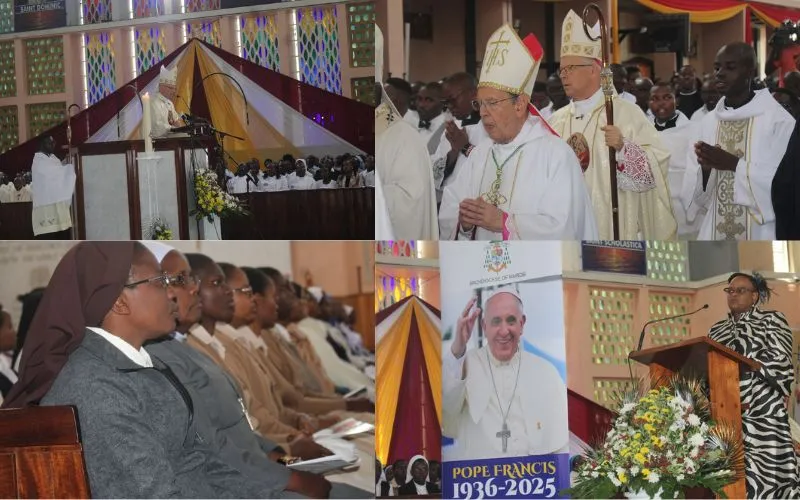Speaking at the end of the Eucharistic celebration, the Local Ordinary of ADN, Archbishop Philip Subira Anyolo, eulogized Pope Francis as one who walked humbly with the Lord.
Archbishop Anyolo remembered the late Pope Francis as one who “acted justly and who loved tenderly and devoted his life in tireless service to the Church and to humanity with compassion and grace.”
“His enduring legacy is a clarion call for each one of us to uphold the values of mercy, justice, and peace in our daily lives,” he said, and added, “We are sincerely grateful to all who have contributed to the solemnity and beauty of this sacred celebration.”
On his part, the immediate former President of Kenya, Uhuru Muigai Kenyatta, remembered the late Pontiff as “a true example of what we all call servant leadership.”
Kenyatta, who was the Kenyan President when Pope Francis visited the East African nation in November 2015 eulogized the late Pontiff as “a man who truly walked in the path of Jesus; a man who, despite his high position, did not walk in and amongst the high and mighty in the world, but rather, like Jesus, chose to walk amongst the poor and those most in need.”
(Story continues below)
“He didn't pick and choose. And even the most vulnerable and the most outcast, he was able to ensure that they were given solace and comfort,” the former Kenyan President said, and adding that late Pope Francis was “truly a man who walked in a path of giving dignity to human life, regardless of whichever condition one found themselves in.”
Meanwhile, in his eulogy that Kenya’s Chief Justice, Martha Koome, read out, President William Samoei Ruto said, “We stand with the Catholic Church to mourn and celebrate a great servant of God, His Holiness Pope Francis, who served the world with distinction, tirelessly working to the last day to touch the lives of the many people that he served.”
“We particularly celebrate him here in Kenya for the holy visit he made in this country and touched many, many people,” President Ruto said.
The Kenyan President continued, “The legacy that our Pope has left, and the seeds that he planted—seeds of love, championing justice, seeking peace, traversing the entire globe to bring peace to the world—may that be a great legacy to us all, and may it touch all of us so that every day of our lives that God gives us on this world and on this earth, we can ask ourselves whether we are sowing seeds of love or we are sowing seeds of disunity, whether we are sowing seeds of peace or seeds of violence, whether we are sowing seeds of unity or seeds of disunity.”








